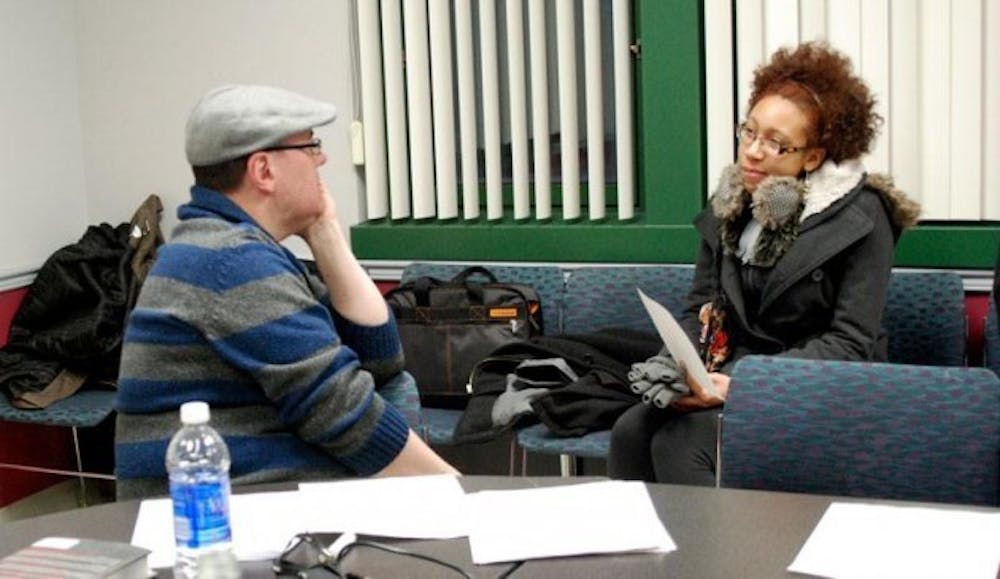Sacha Dix, a senior Asian studies major, said she's been "sheltered" ever since she was a kid. Dix has been struggling with her introverted personality for as long as she can remember.
She's not alone. Introversion is something many students face and a lot of people misinterpret. Last week, Counseling Services held "Quiet: A Workshop for Introverts" to tackle these issues. Some incorrectly equate introversion to social anxiety, according to Thomas Neill, a clinical social worker for Counseling Services.
The population is split evenly between extroverts and introverts, according to Counseling Services' presentation.
Neill set up the workshop to help educate students as part of a "social movement" because people often mislabel introverts, he said.
"It's [introversion], not shyness or an impairment, as often thought," Neill said. "Introverts recharge their emotional batteries by having downtime alone, whereas extroverts recharge their emotional batteries by being with others."
Neill encourages students to understand introverts before judging them.
"If you don't really understand a person, you are going to judge them somehow," said Dix, who attended the Feb. 12 workshop.
The "Quiet" presenters wanted to use the workshop as a way to overturn the idea that introversion is unnatural.
Jonathan Schmaltz, a doctoral psychology intern in Counseling Services, said "introversion is looked down upon." He added that society is structured around high levels of stimulation.
"We live in an over-stimulated society," Neill said. "I think everyone is getting a better understanding of the need for quiet downtime."
For certain people, solitude is crucial, according the presentation. The people who become energized and focused from calm, controlled isolation are known as introverts.
Students like Dix prefer, at times, to say away from other students and to "do [their] own thing," she said.
Ivan Cao, a sophomore communication major, said his introversion intensified in high school.
"I tried to isolate myself from other students," he said.
Cao attended the workshop to gain a better understanding of himself and introversion.
Neill, an introvert himself, encourages students who are struggling to come in to Counseling Services and talk. Students may not think their interpersonal style warrants help or support, according to Neill.
"They may feel they need to be majorly depressed or something more severe to come in," he added.
But not everyone needs help, he emphasized. Introverts "do not necessarily suffer."
Dix said college has given her "more room to grow into [herself] as a whole." For Dix, the problem was not specifically introversion, but rather not fully understanding herself.
"As long as you know who you are, as long as you remember who you are, you will be just fine," Dix said.
email: features@ubspectrum.com





